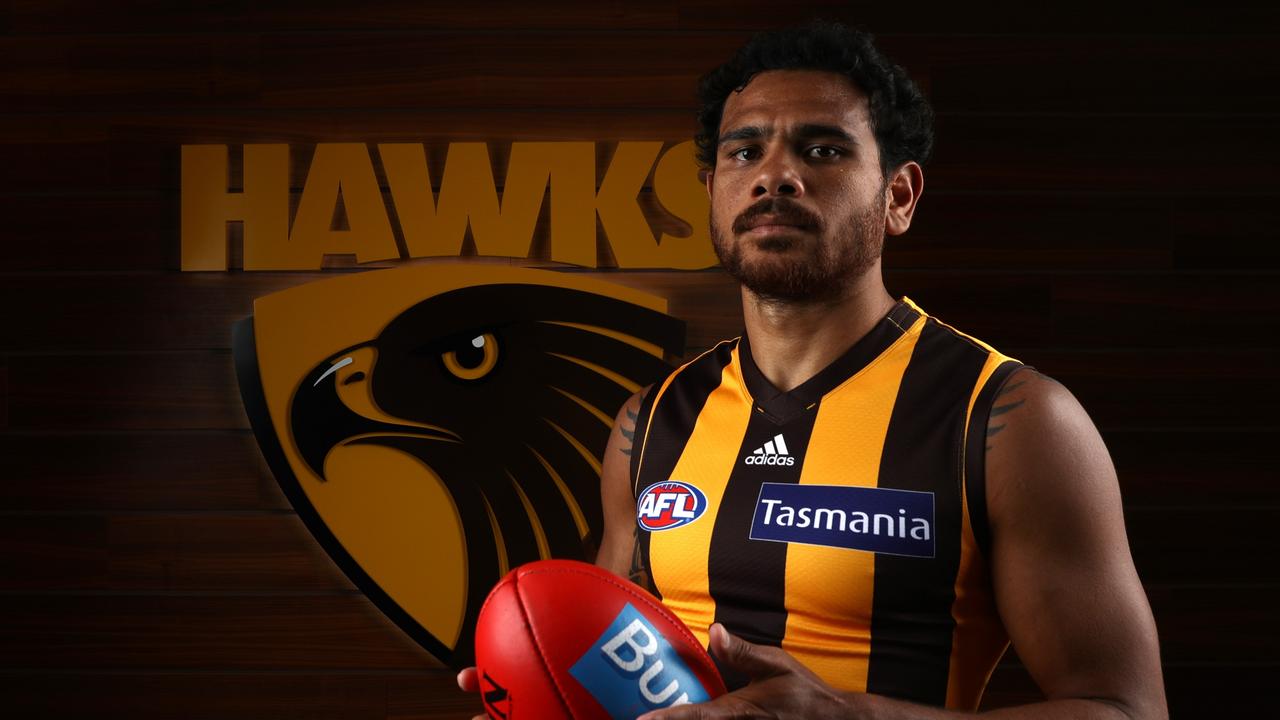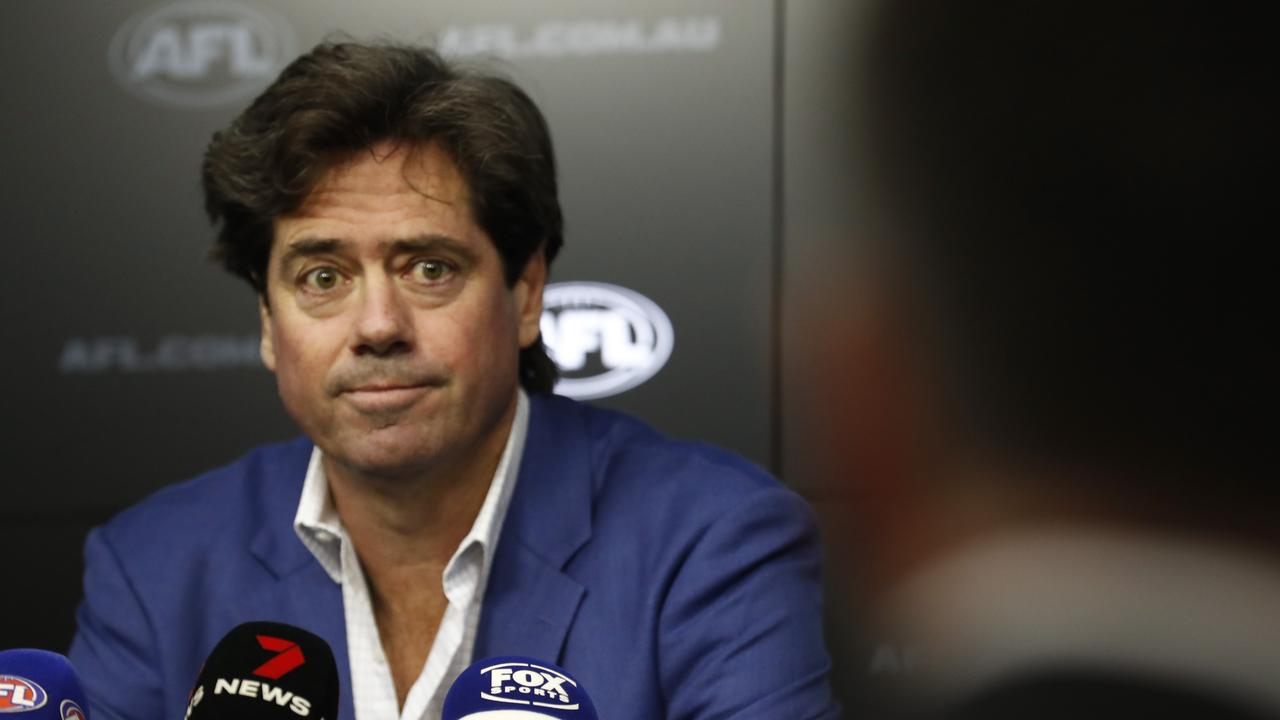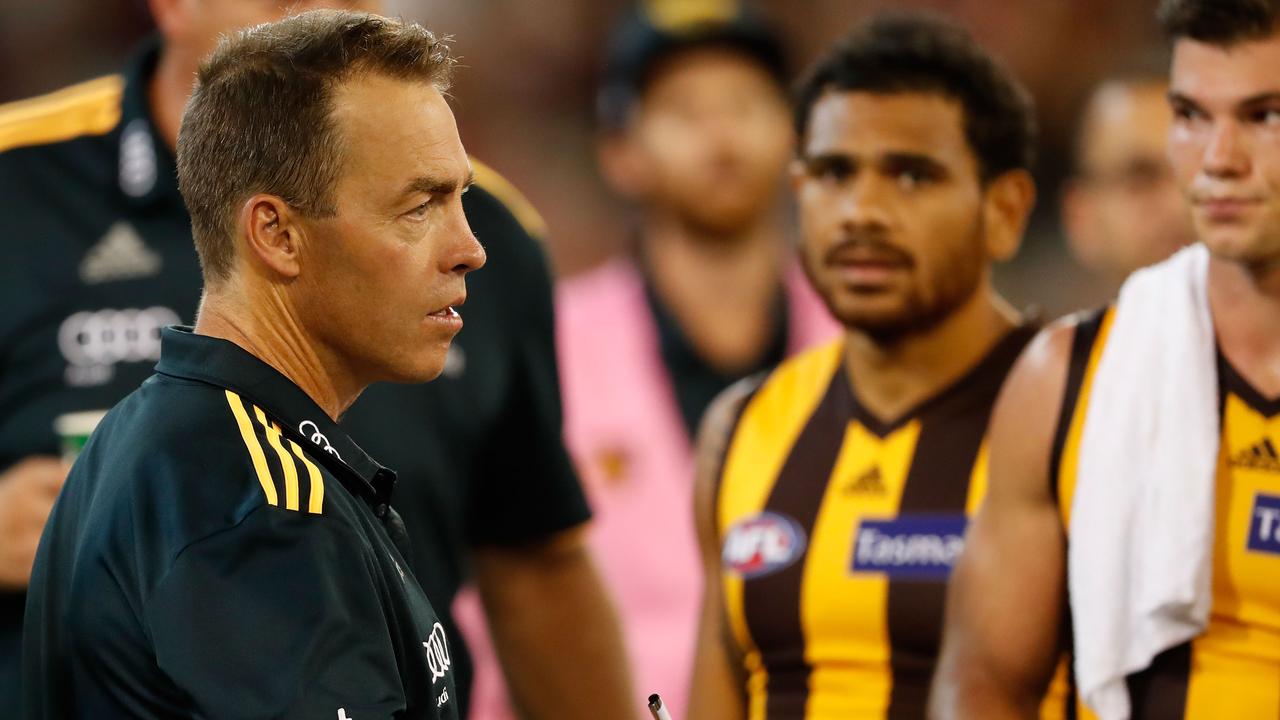Hawthorn racism investigation: Biggest question from First Nations’ deal with AFL
First Nations families said they signed off on the Hawthorn racism investigation from a position of strength. But what did they really get from the AFL?

It’s the question that lingers a week on from the AFL’s resolution to the Hawthorn racism probe: why did the First Nations families sign off on a deal which gave them nothing?
AFL boss Gillon McLachlan walked away with an iron-clad agreement absolving the league of all future legal action, while the three co-accused – Alastair Clarkson, Chris Fagan and Jason Burt – were effectively declared not guilty.
In a statement released by the families’ lawyer Leon Zwier on Friday night, it was stated that the complainants had “reached an agreement with the AFL not out of fear, but strength, because the AFL finally apologised to all First Nations players for racism in football”.
“The AFL acknowledges our pain and hurt when we were at Hawthorn,” the statement said.
“They made a legally binding promise to us to combat racism in football.”
But did they really?
What did the AFL deal actually give the complainants?
In legal speak, an acknowledgment that they felt hurt is not an agreement that the hurt was justified or even that it had happened.
“I’m sorry you felt that way,” it might as well have said.
And how many other times have we seen the AFL apologise to Indigenous players over the years? It was hardly groundbreaking, more like rinse and repeat.

As for the asserted “legally binding promise to combat racism in football”, in reality the AFL deal document sets out a series of recommendations and strategies to do things – with no time frames attached to them.
In the eyes of some, the First Nations complainants have lost credibility through the drawn-out investigation, a view compounded by leaks in recent days about supposed grabs for money.
Surely the right response when it became clear that the AFL’s independent panel was going nowhere was to withdraw from the process rather than engage in a piece of late-night theatre that suggested a settlement had been reached?
Why do McLachlan a favour?
Indeed, why had the four families agreed to take part in the process at all?
It’s hard to disagree with how Michael Bradley of Marque Lawyers, representing another Hawthorn complainant, put it last week.
“I guess the AFL has achieved exactly what it set out to achieve. Nothing,” he said.

A pathway to the Human Rights Commission or another court was always open to the complainants and now nine months have been lost – and not a day of mediation has been held.
It’s also clear that the AFL’s intention until days before the unveiling of last week’s “imperfect resolution” was for Hawthorn to play a key role in the deal.
There were references to compensation funds and even an apology from the Hawks over a “lack of cultural awareness”.
But that all disappeared when the Hawthorn board baulked at the last-minute, a sin for which it now appears the club will be punished.
And without input from the Hawks the deal was a dud.
The AFL still got what it wanted but everything that might have been attractive to the First Nations families was gone, and yet they agreed to it anyway.





